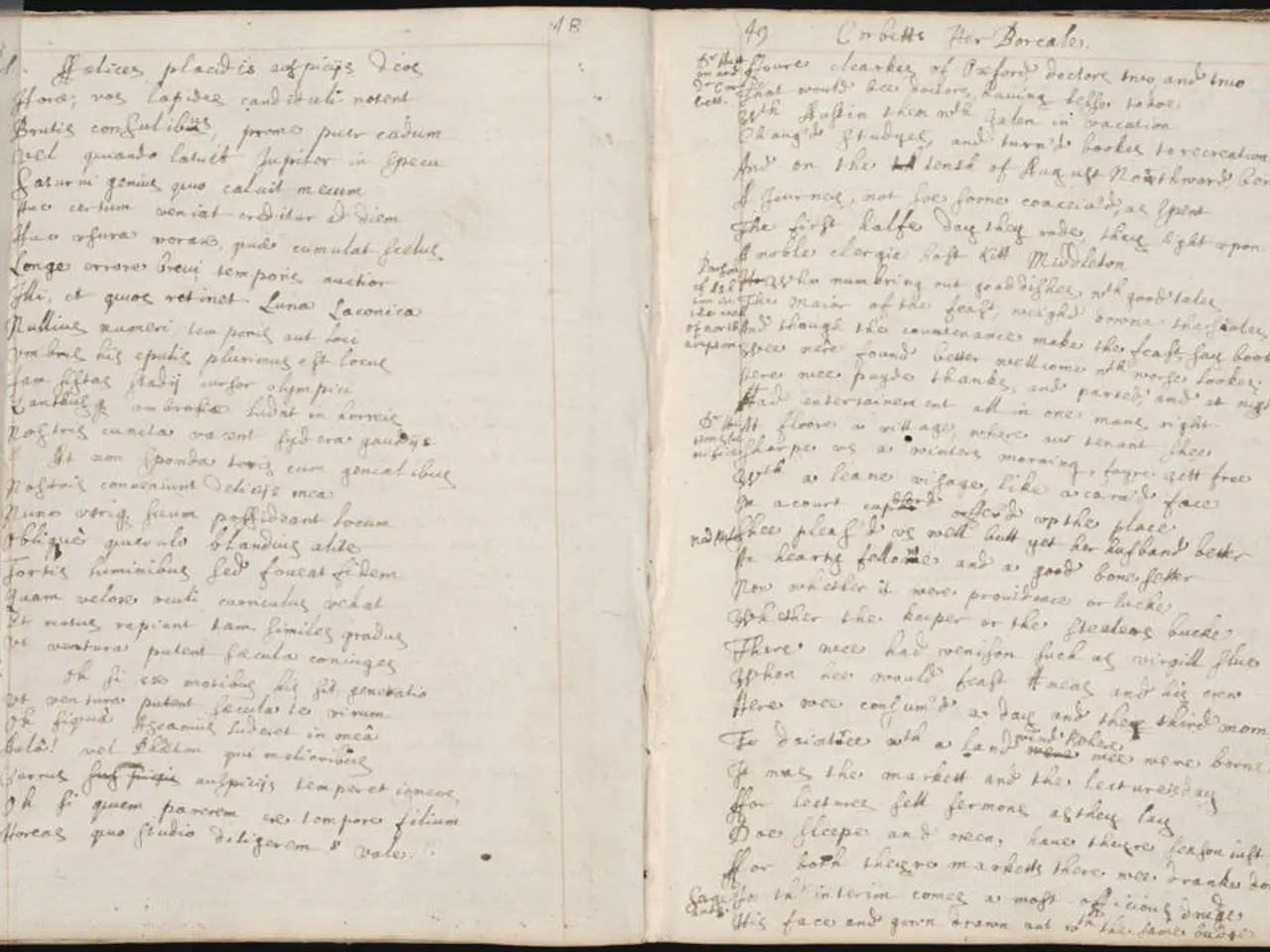Writers Permitted to Voice Political Views?
In the realm of literature, the decision to express political opinions can significantly impact a writer's career and reader engagement. Allison Maruska, a renowned author known for works such as The Fourth Descendant, Drake and the Fliers, and Project Renovatio, shares her thoughts on this delicate balance.
This week, the President blocked Stephen King on Twitter, a move that has sparked conversations about the role of political opinions in the creative world. For Maruska, the fear of affecting her reputation as a writer and potential financial implications have led her to refrain from engaging in online political debates.
The author ponders whether expressing political opinions could attract new readers, but she values the importance of relationships over public political expressions. She encourages constructive action rather than bickering online when it comes to political discussions.
Maruska's fiction works subtly reflect her views on various issues like Big Pharma, gay rights, GMOs, and profiling. However, she believes that if she were to write nonfiction, expressing opinions on issues relevant to the topic would be justified or expected.
Research indicates that changing readers' political beliefs through direct political discourse is challenging. People generally respond hardly at all to political arguments unless connected to their lived experience and social community ties. This means writers expressing strong political opinions might engage readers already sympathetic to those views but have limited effect in converting oppositional readers.
A notable example of the potential impact of political expression on book success is How Democracies Die (2018) by Harvard professors Steven Levitsky and Daniel Ziblatt. The book, which articulated strong political opinions on democratic backsliding, achieved significant commercial success, appearing on The New York Times bestseller list and receiving endorsements from prominent political figures such as Joe Biden and Barack Obama. The book’s political stance and timely relevance contributed to reader engagement and sales, amplified by favorable publicity within aligned political communities.
However, it also faced criticism from opposing political views, demonstrating that political expression can both attract dedicated readership and provoke pushback.
In summary, expressing political opinions can boost a writer’s book sales and reader engagement when the opinions resonate with an existing audience and receive supportive publicity, but it also risks alienation, polarizing potential readers. The effect varies widely by genre, writer’s profile, and the socio-political climate at the time of publication.
Maruska's website offers more of her work and guest posts that often align with her humor blog roots but also discuss teaching and writing specifically. She believes it's important to stand up for causes one believes in, but doing so constructively is key, such as contacting senators, signing petitions, voting, donating to or volunteering for relevant causes.
[1] Levitsky, S., & Ziblatt, D. (2018). How Democracies Die. Viking. [2] Iyengar, S., & Westwood, S. (2015). Is Less More? The Effect of Issue Complexity on Political Persuasion. Journal of Politics, 77(4), 856-868. doi:10.1086/682523








